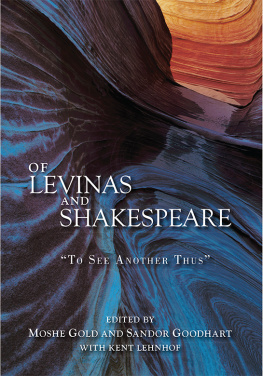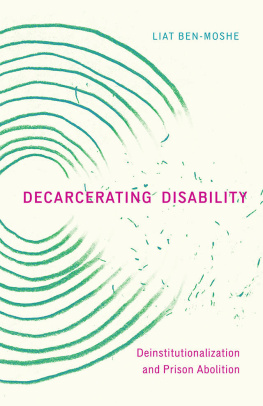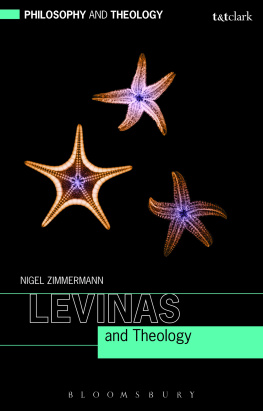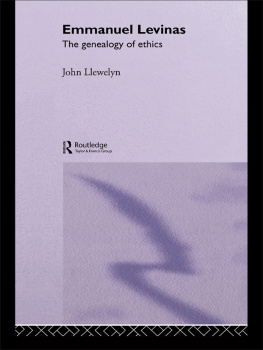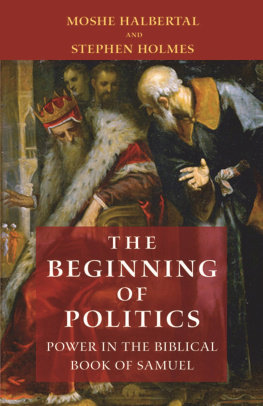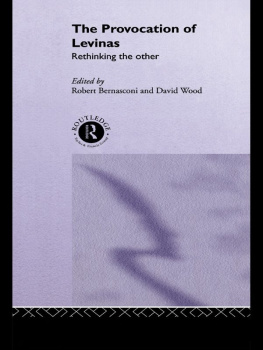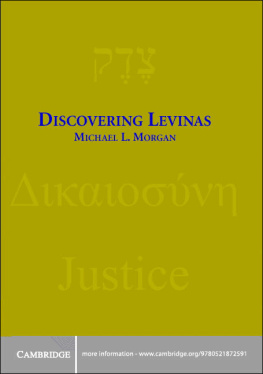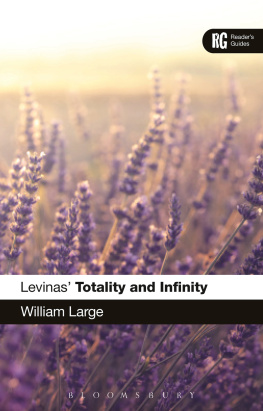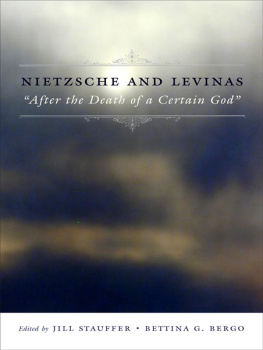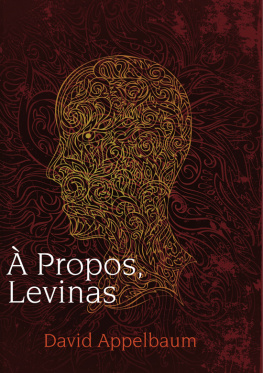Gold Moshe - Of Levinas and Shakespeare: To see another thus
Here you can read online Gold Moshe - Of Levinas and Shakespeare: To see another thus full text of the book (entire story) in english for free. Download pdf and epub, get meaning, cover and reviews about this ebook. City: West, year: 2018, publisher: Lafayette;Indiana Purdue University Press, genre: Religion. Description of the work, (preface) as well as reviews are available. Best literature library LitArk.com created for fans of good reading and offers a wide selection of genres:
Romance novel
Science fiction
Adventure
Detective
Science
History
Home and family
Prose
Art
Politics
Computer
Non-fiction
Religion
Business
Children
Humor
Choose a favorite category and find really read worthwhile books. Enjoy immersion in the world of imagination, feel the emotions of the characters or learn something new for yourself, make an fascinating discovery.
- Book:Of Levinas and Shakespeare: To see another thus
- Author:
- Publisher:Lafayette;Indiana Purdue University Press
- Genre:
- Year:2018
- City:West
- Rating:5 / 5
- Favourites:Add to favourites
- Your mark:
- 100
- 1
- 2
- 3
- 4
- 5
Of Levinas and Shakespeare: To see another thus: summary, description and annotation
We offer to read an annotation, description, summary or preface (depends on what the author of the book "Of Levinas and Shakespeare: To see another thus" wrote himself). If you haven't found the necessary information about the book — write in the comments, we will try to find it.
Gold Moshe: author's other books
Who wrote Of Levinas and Shakespeare: To see another thus? Find out the surname, the name of the author of the book and a list of all author's works by series.
Of Levinas and Shakespeare: To see another thus — read online for free the complete book (whole text) full work
Below is the text of the book, divided by pages. System saving the place of the last page read, allows you to conveniently read the book "Of Levinas and Shakespeare: To see another thus" online for free, without having to search again every time where you left off. Put a bookmark, and you can go to the page where you finished reading at any time.
Font size:
Interval:
Bookmark:

Of Levinas and Shakespeare:
To See Another Thus
Together, the papers in this marvelous collection reveal the significance of Shakespeare for Levinas and the significance of Levinas for Shakespeare. At a time of keen interest in Shakespeare and philosophy, it will be welcomed by philosophers and literary critics alike.
Andrew Cutrofello, Professor of Philosophy,
Loyola University Chicago
Coming upon the heels of the four-hundred-year anniversary of Shakespeares death, Of Levinas and Shakespeare offers a timely and ambitious addition to the growing body of work on Levinas as a writer in peculiar and often uncanny proximity to other writers. This collection explores the nuanced play of affinities between 20th-century ethical philosopher and Elizabethan dramatist/poet, and discloses ways in which Shakespeare might be used to open up Levinas and not merely the other (and more predictable) way around. If reading can be a way of inhabiting, a form of living space, then this volume offers ample satisfaction for the room it provides a range of audiencesscholars of Levinas and of Shakespeare, students of ethical criticism, dialogists of literature and philosophyto dwell for a time within.
Adam Z. Newton, University Professor Emeritus,
Yeshiva University
This valuable collection of essays responds to an observation Levinas made after the Warto wit, that the whole of philosophy is only a meditation on Shakespeare. With this pithy remark, Levinas opened the work of the great bard to our contemporary condition, as a profoundly self-reflexive, indeed ethical, thinker. Through sustained cross-readings of Levinas and Shakespeare, the essays take up dwelling in the tragedies and comedies of Shakespeare, situating the ongoing renewal of the letter through new insights. What are these revitalizing insights into Shakespeare of which Levinas speaks? Above all, it is discerning, in the situations and characters of the playwright, a testimony to the human encounter as infinite, as unlimited by concepts and the ongoing drive to unfold a story and to interrupt it, holding it far from simple answers. Understood through Levinass eyes, Shakespeare dramatized what the philosopher recognized as human worlds peopled with figures, great and small, who are compelled by their respective others to respond and to seek justice. Students and teachers alike will find in this collection innovative and thought-provoking avenues toward reframing Shakespeare studies, and impressive stagings and illustrations of Levinass challenging thought.
Bettina Bergo, Professor of Philosophy,
Universit de Montral
These essays do not simply apply Levinasian concepts to Shakespeare, which in Levinass terms would do violence to Shakespeare by bounding his work with a conceptual schema. Instead, these astute and sympathetic readings enable the Shakespearean literary world, which (as Hamlet suggests to Horatio) overflows the boundaries of philosophys dream, to speak and listen to Levinass philosophical world, which overflows the boundaries of the concept by rooting thought in ethics. This dialogue works hard to preserve the concrete humanity and ethical grounding of both worlds. Now more than ever, in an era that permits the reduction of the human to the tweet, we need this kind of reading.
David P. Haney, President, Centenary University
To See Another Thus
Edited by
Moshe Gold and Sandor Goodhart
with
K ent Lehnh of
Purdue University Press
West Lafayette, Indiana
Copyright 2018 by Purdue University. All rights reserved.
Printed in the United States of America.
Cataloging-in-Publication data is on file at the Library of Congress.
Cloth ISBN: 978-1-55753-805-5
ePDF ISBN: 978-1-61249-541-5
ePUB ISBN: 978-1-61249-542-2
An electronic version of this book is freely available, thanks to the support of libraries
working with Knowledge Unlatched. KU is a collaborative initiative designed to make
high-quality books Open Access for the public good. The Open Access ISBN for this book is
978-1-55753-806-2. More information about the initiative and links to the Open Access
version can be found at www.knowledgeunlatched.org.
Cover image: Patterns in the Rock by Mike Watson Images via Thinkstock
I should evn die with pity,
To see another thus. I know not what to say.
Lear in Shakespeares King Lear (IV.vii. 52-53),
quoted by Levinas in Humanism of the Other Man, p. 3
Table of Contents
The great Daoist philosopher Zhuangzi famously wondered whether he was a man who had dreamt he was a butterfly, or a butterfly dreaming he was a man. It is helpful to remember this anecdote when thinking about Levinass suggestion that the whole of philosophy is only a meditation of Shakespeare. As several contributors to this volume point out, the genitive of (de in French) is ambiguous: was Levinas saying that philosophy is a meditation on Shakespeare, or that philosophy is a meditation by Shakespeare? Perhaps, like Zhuangzi, he was wondering whether he was a philosopher dreaming he was Shakespeare, or Shakespeare dreaming he was a philosopher.
Like so many philosophers, Levinas was fascinated by Shakespeare. One passage that especially fascinated him was the remark that Banquo makes immediately after the witches vanish in Act 1, scene 3 of Macbeth: The earth hath bubbles, as the water has, / And these are of them. (1.3.79-80) As Hilaire Kallendorf and Claire Katz point out in their essay, Levinas cites these words several times over the course of his career. In 1947 he compares beings insinuation in nothingness to bubbles of the earth (les bulles de terre) (Existence and Existents, 57), and in 1965 he uses the same phrase to describe the insinuation of the face into being. (Phenomenon and Enigma, in Collected Philosophical Papers, 70) Finally, in a Talmudic reading published in 1977, he characterizes the sacred (le sacr) as bubbles of Nothing in things. (Nine Talmudic Readings, 141)
What exactly are these bubbles of the earth, and how can they signify so many different things for Levinas? Let us briefly examine the series:
(1) insinuation of being in nothing
(2) insinuation of the face in being
(3) insinuation of nothing in being
At first glance, (1) and (3) appear to be diametrically opposed. According to (1), Banquos bubbles are bubbles of being: like the spawn of a spontaneous generation, they literally appear out of nowhere. According to (3), however, the bubbles are bubbles of nothing that flicker in and out of being. Perhaps we can resolve this apparent contradiction by considering Banquos comparison of bubbles of the earth to bubbles of the water. Bubbles of the water are made not of water but of air. Of what are bubbles of the earth made? Being? Nothing? Or something else?
Perhaps the correct answer is fire. This would be in keeping with the witches chant, Double, double, toil and trouble; / Fire burn and cauldron bubble. (4.1.10-11) It would also round out the series of metaphysical elements:
(bubbles of the) water: air
(bubbles of the) earth: fire
For Heraclitus, fire was the most basic of the four elements. Fire was also a symbol or principle of becoming. Bubbles made of fire would be in a state of perpetual becoming. As such, they would involve both the insinuation of being in nothing and the insinuation of nothing in being. Far from contradicting each other, senses (1) and (3) would coincide.
Another way to explain the connection between senses (1) and (3) has to do with sense (2)the radically different notion that Banquos bubbles involve the insinuation of the face in being. Beyond the ontological categories of being, nothing, and becoming, a face signifies the transcendence of the good. Its appearance within beingits transcendence within immanenceis essentially evanescent. It is, as Levinas says, immediately reduced to nothing, breaking up like the bubbles of the earth. (Phenomenon and Enigma, 70)
Font size:
Interval:
Bookmark:
Similar books «Of Levinas and Shakespeare: To see another thus»
Look at similar books to Of Levinas and Shakespeare: To see another thus. We have selected literature similar in name and meaning in the hope of providing readers with more options to find new, interesting, not yet read works.
Discussion, reviews of the book Of Levinas and Shakespeare: To see another thus and just readers' own opinions. Leave your comments, write what you think about the work, its meaning or the main characters. Specify what exactly you liked and what you didn't like, and why you think so.

